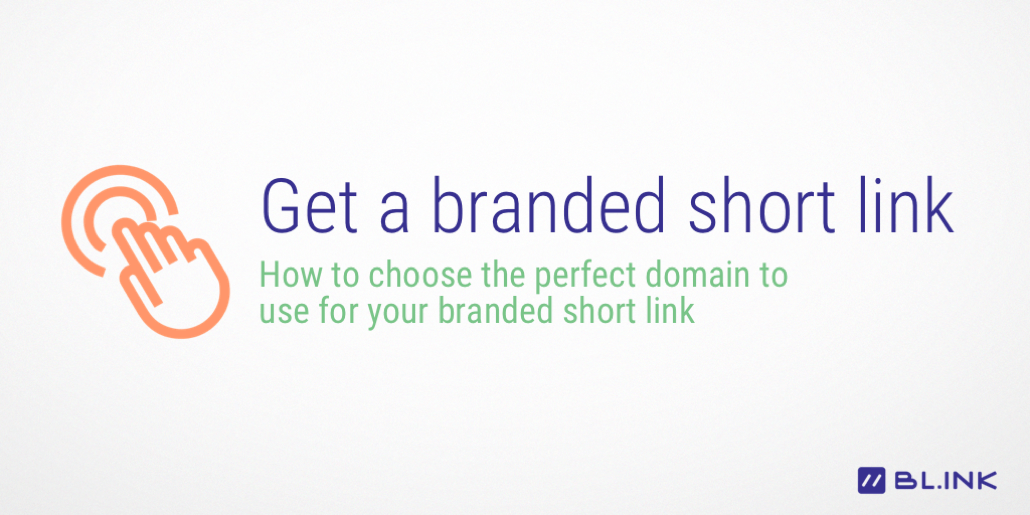
Listen to this blog
How to choose the perfect domain to use for branded links
You’ve seen legacy short links in the wild, on Twitter and Instagram. Random, forgettable gibberish, you can track them, but they do nothing when it comes to building your brand or a meaningful connection to your audience. More and more brands are customizing their short links with their brand and key messages using real words, rather than strings of characters. Their links are instantly recognizable and help build trust when their audience clicks, since people know where they’re going, just by the way the link looks.
Read on to learn how to choose and create your own custom branded links.
What are branded short links?
Branded links are long links that have been shortened, but instead of using a generic and potentially spammy link shortener, the link is customized. For example:
How do branded links work?
It’s pretty easy! First, you need to purchase or add a domain that you can use for your links. A short link service such as BL.INK helps you find and add domains relevant to your brand in no time. As with any link shortener, you simply paste a long link that you’d like to shorten into BL.INK.
i.e. www.mydesignwebsite.studio/blog/cool-art-post becomes me.design/cool
You can also customize the text after the hash to represent the content you are linking to.
Check out these ideas for short domains:
- Your Twitter or Instagram handle: .social
- Your YouTube channel: .tv, .video, or .live
- Your brand name: .news, .today, or .life or .rocks
You get the idea. Short domains using real words lend credibility to your brand and greater meaning to the short link: your followers are more likely to click because the link contains more relevant information. In fact, a recent survey showed that up to 80% of users prefer short links using real words, over long links or legacy short links that contain character strings. So, how do you know if a short domain is really the perfect fit for your brand? Here’s what you should look for. Your short domain must be:
Relevant to your brand
If the link doesn’t support your brand identity and messages, then you should keep looking. When you pick a short domain, it has to include words that contain your key messages and your brand. For example, pat.ag is a shortened URL from Patagonia. No matter what your brand is, there’s a creative way to use the hundreds of available top-level domains (the ending of the domain, such as .com, .news, .social., .community, .live, etc.) to communicate it.
Memorable
Not only should the domain convey your brand, but it should also make a simple connection to your audience. Consider the format it will be displayed in. Will this be part of an ad? It should be easy to read. Will this be spoken by an announcer or virtual assistant? It should be easy to say. Do people need to navigate to this page manually, typing it in? It should be easy to spell and remember.
If you use random link shorteners, your URL might not only fail to communicate where it goes but also just be plain indistinguishable. Think of it: the absolute worst thing in marketing is to be forgettable! A random short link can put a viewer off, or even land in the spam folder.
Meaningful words
The whole idea here is to make your domain work harder on your behalf, and while keeping the link short is preferred, meaning>length. Choose a domain or suite of domains that include your brand and messages that resonate with your audience.
Certifiably clickable
Online, everything comes with a measurable number, and you can test it all. What’s great about BL.INK is that every short link you create is tracked for how many times people click on it. This means you can easily assess the impact of every link you share.
How to get branded short domains
If you’re all set on how branded short domains can help your brand grow and stand out from the crowd, you’ll want to snap up variations for all the occasions you can think of. BL.INK takes the work out of branded domains, letting you search through hundreds of unique top-level domains and countless possibilities.
Plus, you get advanced analytics features such as tracking by source and flexible reporting for all your campaigns and special occasions. Ready to link smarter?


